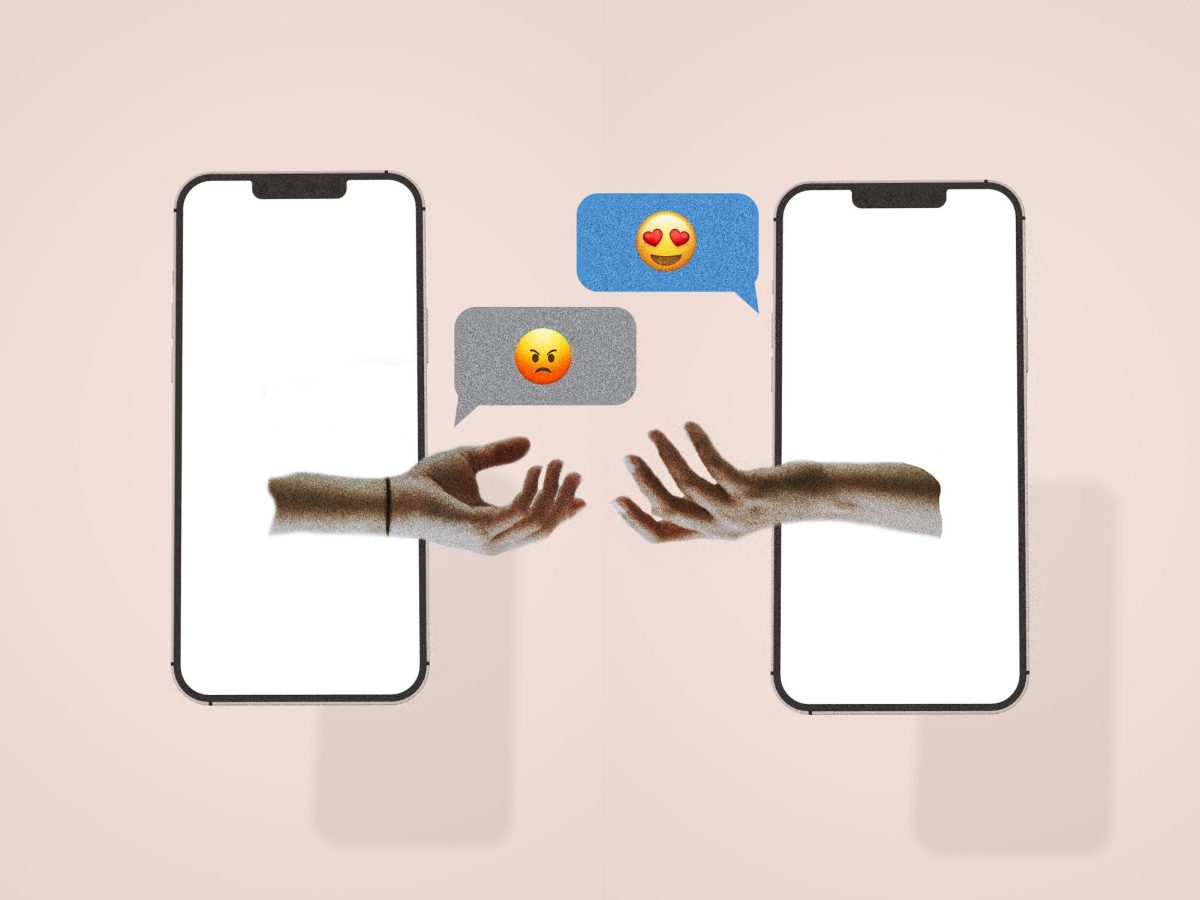Too many singles in the dating pool have been left to question our every move in the modern dating world. There’s an expectation of playing elusive — don’t be too vulnerable, or you’ll get hurt; be upfront, and it’s received as a turn-off. There are several unwritten rules and it becomes easy to disregard your own feelings for what you think someone else might want.
While out with my friends one night, I met a really cute guy. It was straight out of a rom-com: We exchanged phone numbers and made plans to see each other again. He offered to take me to the Metropolitan Museum of Art, which, in my mind, implies a genuine interest far removed from a hookup.
Before our museum date, however, he invited me to a house party, and I quickly became flustered. I declined out of fear that if I agreed, he would think of me as “too available.” In the end, being elusive was not helpful because on the day of our intended museum date, I was ghosted.
Without an explanation or an apology, I was left to overthink what happened. Was he less inclined to take me to the museum because I declined his invitation to the house party, or had the Met date never even been a possibility? Was he looking for something serious or a convenient hookup? I was spiraling for answers I could never receive.
People need to be more upfront about their dating intentions. Too many young adult singles are being left to decipher cryptic text messages, toxic love bombing and inevitable ghosting. These tactics are manipulative and often largely perpetuated by a fear of commitment and a facade of unlimited options. Unfortunately, technology and the prevalence of online social interaction are only growing these unhealthy dating behaviors.
Dating apps are one of the biggest culprits responsible for our generation’s toxic practices. They provide an enticing service: find a partner with a few swipes and no consequences, similar to a game of some sort. The reality, however, is much more complicated; online interaction removes accountability, so ghosting has become a popular solution for avoiding conflict.
Instead of establishing healthy lines for communication, people refresh their matches and start over. This creates a pattern of meaningless interactions and rejection without explanation, which can be demoralizing for both sides of the relationship.
By normalizing being open, we can make the dating experience a safer and kinder experience.
According to dating coach Briana MacWilliam, 90% of Gen Z have expressed frustrations with dating apps — and why shouldn’t we be? The endless cycle of men delivering the same corny pick-up lines is exhausting. I could not tell you how many times a match has opened with “I usually go for 8’s, but I guess I’ll settle for a 10,” or “I’m new in town. Could you give me directions to your apartment?”
The funny part is most of these guys would never say this in person, but on dating apps we’re all pretending to be somebody else.
Unfortunately, I myself have been guilty of presenting a facade to attract attention — choosing photos that highlight my body instead of my personality and picking shallow prompts that cater to “business bros” have led to some dry online interactions. It feels impossible to be genuine on dating apps since looks determine popularity.
As social media has become the norm, the dating pool has been expanded to thousands of people online. Before they were able to hide behind a screen, people were forced to face conflict directly. Of course, toxic dating habits have always existed but today, they are much more prevalent given the global reach of the internet. One way to avoid these patterns is to step away from the dating scene, but that’s not always the best way to find what you need.
Many young people are finding solace in choosing a single life, and I can’t blame them. One negative experience can tarnish the rest. For a while, after I broke off a complicated relationship, I would snap at any man who approached me, not believing that any of them were being genuine. At the time, I blamed my ex for stealing my faith in men. Instead of simply giving up on dating, I’ve now learned to better establish my interests when talking to guys.
Dating apps such as Tinder, Bumble and Hinge include a feature that allows users to share what they’re looking for in a relationship; I’ve noticed, however, that many people on those apps do not use that feature sincerely. If you know you want a hook-up, don’t say, “I’m still figuring it out.” Just say that you want a hook-up. The same rule extends to those seeking a relationship. Being vulnerable about your true intentions can be scary, but in the long run, you’ll be doing yourself a favor.
Being open about what you want in your dating life will connect you with people who share your goals and aspirations. For every person looking for a situationship, a short-term relationship or a life partner, there are others looking for the same thing. It’s not fair to manipulate someone to serve your own self-interests. By normalizing being open, we can make the dating experience a safer and kinder experience.



